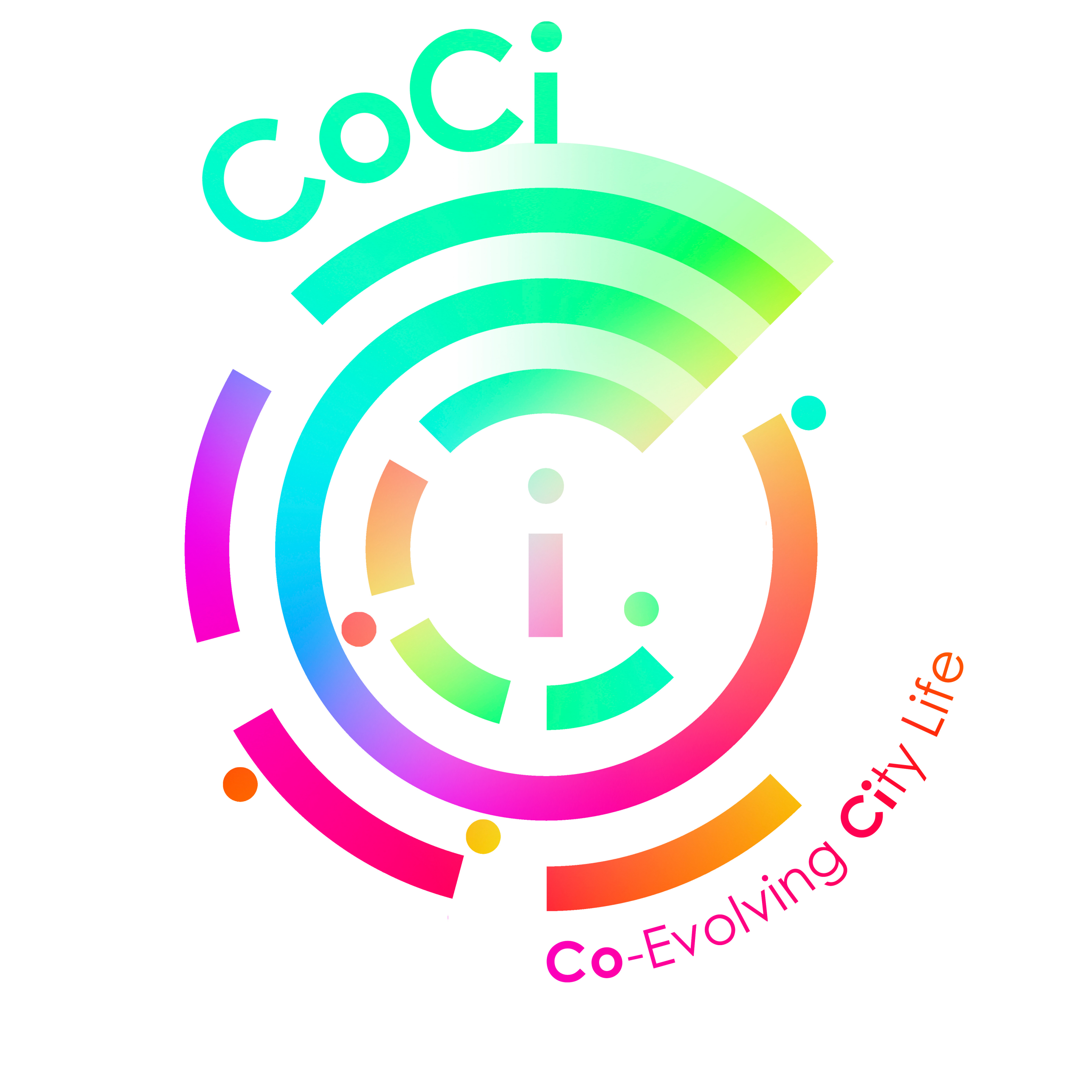CoCi (Co-Evolving City Life)
Contact Person: Prof. Dirk Helbing
Duration: 10/2020 - 09/2025
Funding: ERC-ADG - Advanced Grant (Grant agreement ID: 833168)
Funded by the European Union (ERC, CoCi, 833168). Views and opinions expressed are however those of the author(s) only and do not necessarily reflect those of the European Union or the European Research Council Executive Agency. Neither the European Union nor the granting authority can be held responsible for them.
Grant Website: external page https://cordis.europa.eu/project/id/833168
Further links:
external page https://erc.europa.eu/news/erc-2018-advanced-grants-highlighted-projects
https://ethz.ch/en/news-and-events/eth-news/news/2019/04/erc-advanced-grants-2019-en.html
external page http://futurict.blogspot.com/2019/03/using-wisdom-of-crowds-to-make-cities.html
How could innovative decentralized organisational approaches contribute to addressing humanity’s societal, sustainability, and governance challenges?
Starting from the paradigm of smart cities, we propose that the requirement of organizing societies in a more resilient way implies the need for more decentralized solutions, based on digitally-assisted self-organization and that this concept is also compatible with sustainability requirements and stronger democratic participation.
The main topics of the project are:
Main Question: What implications does the requirement of cities to become more resilient have for their organization?
Main Hypothesis: Decentralization, diversity, backups, solidarity and digitally assisted, participatory approaches are principles that can help to make cities and their operation more resilient.
Publications:
external page Participatory resilience: Surviving, recovering and improving together
external page Design and development of an open-source framework for citizen-centric environmental monitoring and data analysis
external page Less can be more: Pruning street networks for sustainable city-making
Main Question: How can self-organization principles be used to make cities more efficient and resilient to disruptions? How can they be improved with machine learning and swarm intelligence approaches?
Main Hypothesis: When optimization problems are NP-hard (i.e. computationally challenging and complex), self-organization approaches based on short-term anticipation and local coordination, can outperform conventional state-of-the-art centralized control approaches, particularly if the entities learn different behavioural parameters on different time scales (i.e. some fast, some slow).
Publications:
external page Analytically Guided Reinforcement Learning for Green It and Fluent Traffic
external page Adaptability and sustainability of machine learning approaches to traffic signal control
external page Getting Real: The Challenge of Building and Validating a Large-Scale Digital Twin of Barcelona’s Traffic with Empirical Data
Main Question: How can self-organization and resilience principles be used in a way that makes cities more sustainable?
Main Hypothesis: A multi-dimensional measurement, feedback, and coordination system, based on a combination of Internet of Things and Blockchain Technology, can be used to support efficient self-organisation of material flows and supply networks such that a circular and sharing economy is boosted.
Main Question: How can more participatory cities be organized such that they do not get chaotic, inefficient, and dysfunctional, but more innovative, coordinated, and efficient over time?
Main Hypothesis: Digitally assisted self-organization supporting particular kinds of interactions can serve to significantly increase creativity, co-creation, coordination, efficiency, and functionality.
Main Question: How can we understand the dynamics and development of (networks of) participatory cities? How do they compare over time with other organisational paradigms (e.g. more top-down organized approaches) in terms of resilience, sustainability, and cooperation level?
Main Hypothesis: Methods, as they have been developed and studied in mathematical ecology, can be extended by elements such as innovation, co-creation, and learning such that estimates can be made about certain features of the co-evolutionary dynamics of cities.
- MOOC on Self-organization in Pedestrian and Traffic Systems and Logistics
- external page Socio-Economic Implications of the Digital Revolution
- external page Ethics of Smart Cities
- external page Soc-IoT: A Proof-of-Concept for Citizen-Centric Environmental Monitoring
- external page Vayu: An Open-Source Toolbox for Visualization and Analysis of Crowd-Sourced Sensor Data
- external page Getting Real: The Challenge of Building and Validating a Large-Scale Digital Twin of Barcelona’s Traffic with Empirical Data
- external page Digital Twins: Potentials, Limitations, and Ethical Issues
- external page How networks shape diversity for better or worse
- external page Next Civilization
Contact
Computational Social Science
Stampfenbachstrasse 48
8092
Zürich
Switzerland

